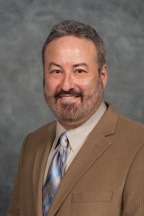Program Information
Education Council Symposium: Future Trends in Medical Physics Education

J Dobbins
E Jackson
J Prisciandaro
V Montemayor
J Dobbins
J Dobbins1*, E Jackson2*, J Prisciandaro3*, V Montemayor4*, (1) Duke University Medical Center, Durham, NC, (2) University of Wisconsin, Madison, WI, (3) University of Michigan, Ann Arbor, MI, (4) Germantown Academy, Fort Washington, PA
Presentations
11:30 AM : Opening remarks - J Dobbins, Presenting Author11:35 AM : Adapting graduate education to future directions in the field of medical physics - E Jackson, Presenting Author
11:50 AM : Future trends in residency training - J Prisciandaro, Presenting Author
12:05 PM : Novel approaches to teaching medical physics - V Montemayor, Presenting Author
12:20 PM : Q & A - J Dobbins, Presenting Author
SU-D-FS4-0 (Sunday, July 30, 2017) 11:30 AM - 12:30 PM Room: Four Seasons 4
Education in the field of medical physics covers a broad range of types of learners, including those within the field as graduate students and residents, and also affiliated health professionals and even the general public. Providing the right educational approach for each of these diverse audiences requires careful forethought. This symposium will cover current and future models of education focused primarily on graduate and residency training. As medicine evolves over the coming decades, there will inevitably be changes in the roles of medical physicists, and such changes will have implications for graduate training. The ways in which graduate education will need to change to meet these evolving paradigms will be covered in this symposium. Likewise, training approaches for residency education are adapting to incorporate the need for both academic and clinical physicists in the marketplace, and those approaches will be identified. Last, there are exciting new approaches in educational theory and practice with implications for how best to train medical physicists, and these novel pedagogical methods will be outlined.
Learning Objectives:
1. Understand the ways in which graduate education is expected to change to incorporate potential changes in the science and practice of medical physics
2. Understand current trends and future directions in residency training for medical physicists
3. Understand how novel educational approaches can contribute to robust and effective teaching of medical physics
Handouts
- 127-38226-416554-126243.pdf (J Dobbins)
- 127-38227-416554-126446.pdf (E Jackson)
- 127-38228-416554-126838-1931819084.pdf (J Prisciandaro)
- 127-38229-416554-126688.pdf (V Montemayor)
- 127-38230-416554-126243.pdf (J Dobbins)
Contact Email:




